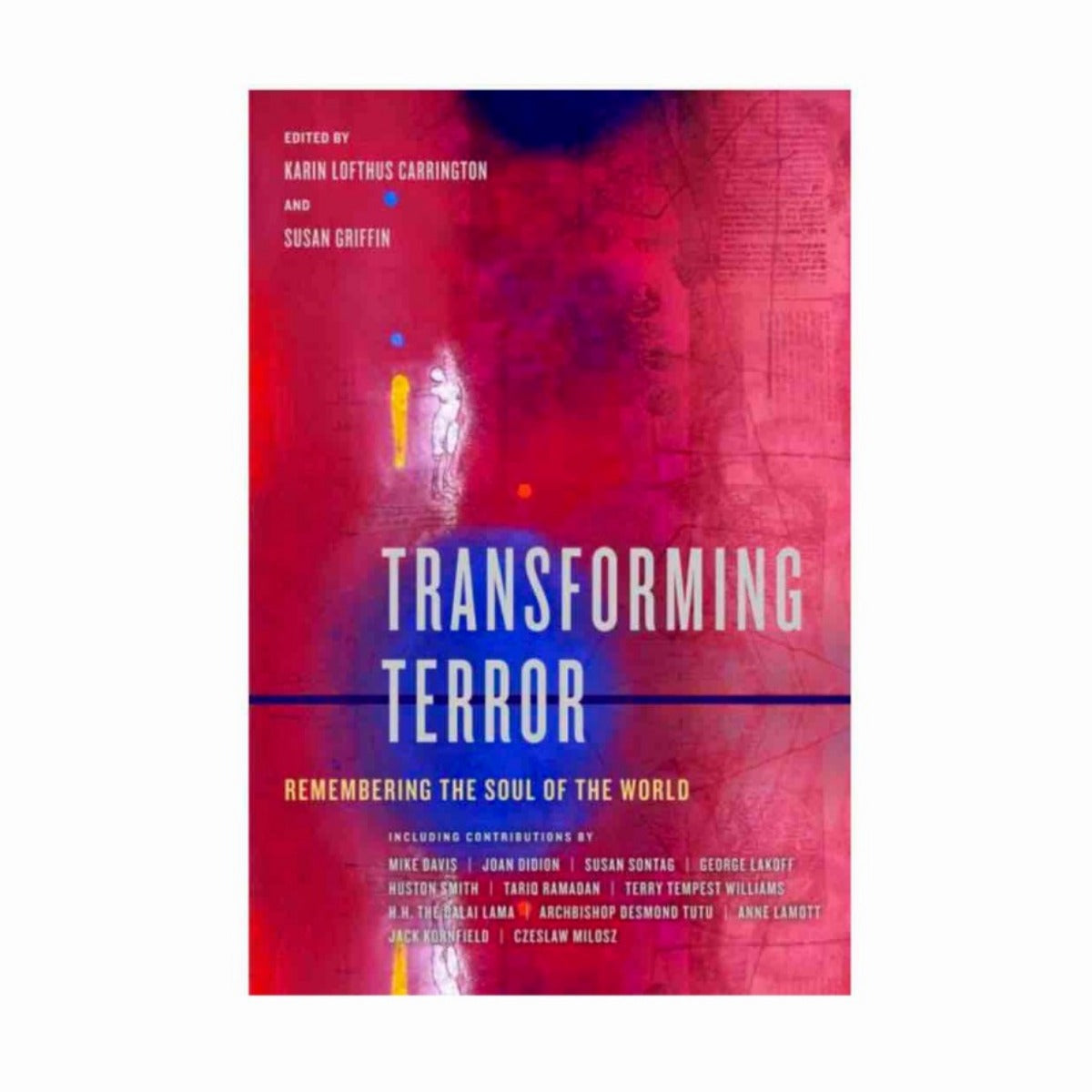Retail Sales
Transforming Terror Edited by Karin Lofthus Carrington & Susan Griffin
Transforming Terror Edited by Karin Lofthus Carrington & Susan Griffin
Couldn't load pickup availability
This inspired collection offers a new paradigm for moving the world beyond violence as the first, and often only, response to violence. Through essays and poetry, prayers and meditations, Transforming Terror powerfully demonstrates that terrorist violence--defined here as any attack on unarmed civilians--can never be stopped by a return to the thinking that created it. A diverse array of contributors--writers, healers, spiritual and political leaders, scientists, and activists, including Desmond Tutu, Huston Smith, Riane Eisler, Daniel Ellsberg, Amos Oz, Fatema Mernissi, Fritjof Capra, George Lakoff, Mahmoud Darwish, Terry Tempest Williams, and Jack Kornfield--considers how we might transform the conditions that produce terrorist acts and bring true healing to the victims of these acts. Broadly encompassing both the Islamic and Western worlds, the book explores the nature of consciousness and offers a blueprint for change that makes peace possible. From unforgettable firsthand accounts of terrorism, the book draws us into awareness of our ecological and economic interdependence, the need for connectedness, and the innate human capacity for compassion.
On Citizen Diplomacy by Dulce Murphy
"Since the beginnings of recorded history, citizen diplomacy has been part of international relations. But until recently it has not been named as such, much less studied as a significant aspect of foreign affairs. I’ve been involved in such activity since 1980 at a time when the Soviet Union and the United States were engaged in the Cold War. Politically and culturally concerned citizens like myself, primarily from the United States and Great Britain, were motivated to take action then. Many of our actions, which began as naïve attempts at making change through personal contacts, led to speaking out about misunderstood ideologies among citizens of many divergent cultures.Today, citizen diplomacy has become a strong force, practiced by both lay people and professionals. Dissertations on the subject are becoming more common as the importance and success of what we have named Track Two Diplomacy makes its way into school curricula all over the world. Citizen diplomacy originated with the development of a series of “Track Two” interventions. Joseph Montville, former career diplomat in the U.S. State Department and now Chairman of the Board of Track Two: An Institute for Citizen Diplomacy, coined the term in 1981. He distinguished traditional diplomatic activities (track one diplomacy) from “unofficial, informal interaction between members of adversarial groups or nations with the goals of developing strategies, influencing public opinions and organizing human and material resources in ways that might help resolve the conflict.” Why is citizen diplomacy so effective? Our experience with formal diplomacy is that the actions of governments often have a limited ability to solve problems. By contrast, citizens have a strong psychological investment in protecting their political, cultural, economic survival and their human rights. When confronting governments, leaders, and conflicts, citizens who are affected by a crisis often refuse to stand by and watch a dangerous situation unfold. Although citizen diplomacy does not replace formal diplomacy, it complements the efforts of governments by building trust and mutual understanding based on face- to- face relationships among citizens of different cultures, regions, and religions. When ideology is put on hold by creative human contact, humanity gets a chance to speak."


